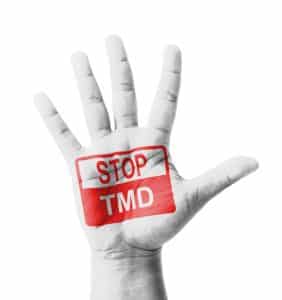 When you spend time reflecting on an entire year, there are a lot of things to consider! There’s your work life, your social life, your love life, your general well being, and a million other areas of your journey on this planet. The one we are most interested in, of course, is your oral health! How did you do throughout 2016? While it’s possible you had some ups and downs over the year when it comes to your smile, we suggest you take a moment to consider some reasons to pat yourself on the back. Focusing on the positive is always a helpful way to transition into the New Year!
When you spend time reflecting on an entire year, there are a lot of things to consider! There’s your work life, your social life, your love life, your general well being, and a million other areas of your journey on this planet. The one we are most interested in, of course, is your oral health! How did you do throughout 2016? While it’s possible you had some ups and downs over the year when it comes to your smile, we suggest you take a moment to consider some reasons to pat yourself on the back. Focusing on the positive is always a helpful way to transition into the New Year!
Happy Holidays! It’s Time For A Festive Quiz!
 As the weekend quickly approaches, we would just like to send out our wishes for a very enjoyable holiday experience. Take a break from the hustle and bustle of everyday life, spend time with family and friends, and smile that healthy smile of yours! It is healthy, right? Check out a quick holiday quiz to make sure you’re keeping your oral health protected throughout the fun and merriment that awaits.
As the weekend quickly approaches, we would just like to send out our wishes for a very enjoyable holiday experience. Take a break from the hustle and bustle of everyday life, spend time with family and friends, and smile that healthy smile of yours! It is healthy, right? Check out a quick holiday quiz to make sure you’re keeping your oral health protected throughout the fun and merriment that awaits.
TMJs: Working Out The Details
 Do you know what we’re talking about when we discuss TMJ disorder (TMD) with you? If you don’t know what a TMJ is then the answer is probably a flat out, “Nope!” Since your functional health is extremely important (and since you are experiencing a problem with your jaw that requires care), we encourage you to learn the basics. Once you have the essentials down pat, you can quickly understand what’s happening with your jaw joints, why you need care, and how TMJ treatment works. Let’s iron out those details!
Do you know what we’re talking about when we discuss TMJ disorder (TMD) with you? If you don’t know what a TMJ is then the answer is probably a flat out, “Nope!” Since your functional health is extremely important (and since you are experiencing a problem with your jaw that requires care), we encourage you to learn the basics. Once you have the essentials down pat, you can quickly understand what’s happening with your jaw joints, why you need care, and how TMJ treatment works. Let’s iron out those details!
Bad Breath: What’s The Problem?
 Perhaps you are trying to figure out how you could possibly have bad breath. After all, you have a toothbrush and toothpaste! Dental floss, too! All of which you use at least most of the time as we have suggested. You have even stopped eating all things extremely smelly like garlic and onions. Still, though, your halitosis persists. We understand that this can feel like an uphill battle. Fortunately, there are some easy answers. Of course, when you cannot seem to resolve the issue, coming in for a visit with us is always the best next step.
Perhaps you are trying to figure out how you could possibly have bad breath. After all, you have a toothbrush and toothpaste! Dental floss, too! All of which you use at least most of the time as we have suggested. You have even stopped eating all things extremely smelly like garlic and onions. Still, though, your halitosis persists. We understand that this can feel like an uphill battle. Fortunately, there are some easy answers. Of course, when you cannot seem to resolve the issue, coming in for a visit with us is always the best next step.
Need Cosmetic Care? Consider These Holiday Blunders!
 Have you been thinking lately that you might need cosmetic care, so you can feel exceptional about your smile? If you’re not sure whether the time is right (or if maybe you’re making more out of your dislike of your smile than is necessary), we are here to help! Since a new perspective can often provide you with the motivation you have been missing to go forward with improving your grin, we suggest you make your way through a couple potential holiday blunders. They just might help you pick up the phone to schedule your cosmetic consultation.
Have you been thinking lately that you might need cosmetic care, so you can feel exceptional about your smile? If you’re not sure whether the time is right (or if maybe you’re making more out of your dislike of your smile than is necessary), we are here to help! Since a new perspective can often provide you with the motivation you have been missing to go forward with improving your grin, we suggest you make your way through a couple potential holiday blunders. They just might help you pick up the phone to schedule your cosmetic consultation.
Blurring The Oral Health Guidelines: Are You On Track?
 Do you find that you occasionally tell yourself little white lies when you’re not really in the mood to care for your smile? Perhaps you make rationalizations when our explanation of protecting your oral health just doesn’t sound logical. While we certainly understand the desire to personalize your dental care in a way that feels extra easy and comfortable for you, this approach can end in disaster! To ensure you’re not inching your way toward an unhealthy smile on accident, we encourage you to check in on your habits.
Do you find that you occasionally tell yourself little white lies when you’re not really in the mood to care for your smile? Perhaps you make rationalizations when our explanation of protecting your oral health just doesn’t sound logical. While we certainly understand the desire to personalize your dental care in a way that feels extra easy and comfortable for you, this approach can end in disaster! To ensure you’re not inching your way toward an unhealthy smile on accident, we encourage you to check in on your habits.
Q&A: Why Purchase A Safe, Reusable Water Bottle?
 Have you noticed that most of your friends aren’t carrying around water bottles that you might pick up at the grocery store (the type that you toss into the recycling bin after you’re finished)? Instead, they’re carrying bottles meant to tote water around for the long haul? A reusable bottle for your daily hydration needs is something that can become a huge asset for your oral health. Not sure how this works in favor of your smile? We can help.
Have you noticed that most of your friends aren’t carrying around water bottles that you might pick up at the grocery store (the type that you toss into the recycling bin after you’re finished)? Instead, they’re carrying bottles meant to tote water around for the long haul? A reusable bottle for your daily hydration needs is something that can become a huge asset for your oral health. Not sure how this works in favor of your smile? We can help.
Give Yourself The Gift Of Smile Beauty
 Have you been toting around your wish list for the 2016 holiday season? Perhaps you secretly whispered your dream gift into Santa’s ear at the mall, hoping none of your friends saw you! Whatever the case, if what you really want is a more beautiful smile, there’s no need to wait for a magical answer to your hopes. Instead, you can just give us a call and then stroll into our practice for your cosmetic dentistry consultation. While our team doesn’t include any gift-making elves, we do offer a variety of exceptional treatments for a lovely grin!
Have you been toting around your wish list for the 2016 holiday season? Perhaps you secretly whispered your dream gift into Santa’s ear at the mall, hoping none of your friends saw you! Whatever the case, if what you really want is a more beautiful smile, there’s no need to wait for a magical answer to your hopes. Instead, you can just give us a call and then stroll into our practice for your cosmetic dentistry consultation. While our team doesn’t include any gift-making elves, we do offer a variety of exceptional treatments for a lovely grin!
Gum Disease Quiz
 If gum disease is new to you, then you might not know much about it at all. You probably have a good understanding that it’s bad for your smile and your oral health in general but that doesn’t translate into extensive knowledge on the topic. To help ensure you’re educated regarding what to do if you think this issue is affecting you, how to detect it, and what needs to happen to protect your gums, we suggest you begin with a quiz. It will highlight any knowledge you already have, while filling in the details.
If gum disease is new to you, then you might not know much about it at all. You probably have a good understanding that it’s bad for your smile and your oral health in general but that doesn’t translate into extensive knowledge on the topic. To help ensure you’re educated regarding what to do if you think this issue is affecting you, how to detect it, and what needs to happen to protect your gums, we suggest you begin with a quiz. It will highlight any knowledge you already have, while filling in the details.
Whiter Teeth: How Long Does It Take?
 The holidays are upon us, which probably means more than the usual number of friendly smiles and warm hugs. There are likely to be photo ops galore, and that is good reason to want to feel comfortable with your smile. If you’ve been wondering about whitening your teeth, and how long whitening procedures take to make a change, you’ll be glad to know it isn’t too late. Teeth can be lighter with a single visit, or you can opt for a slightly longer timeframe if you whiten your teeth at home. (more…)
The holidays are upon us, which probably means more than the usual number of friendly smiles and warm hugs. There are likely to be photo ops galore, and that is good reason to want to feel comfortable with your smile. If you’ve been wondering about whitening your teeth, and how long whitening procedures take to make a change, you’ll be glad to know it isn’t too late. Teeth can be lighter with a single visit, or you can opt for a slightly longer timeframe if you whiten your teeth at home. (more…)







